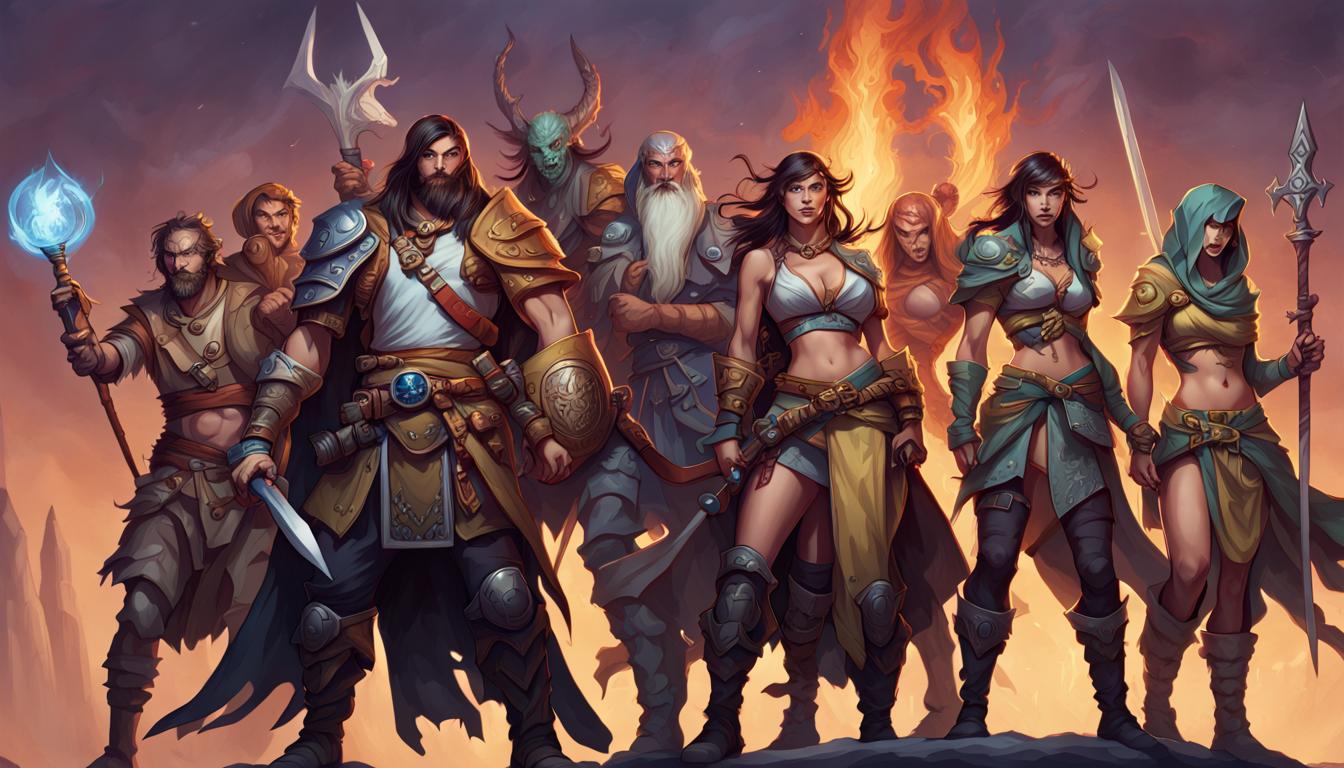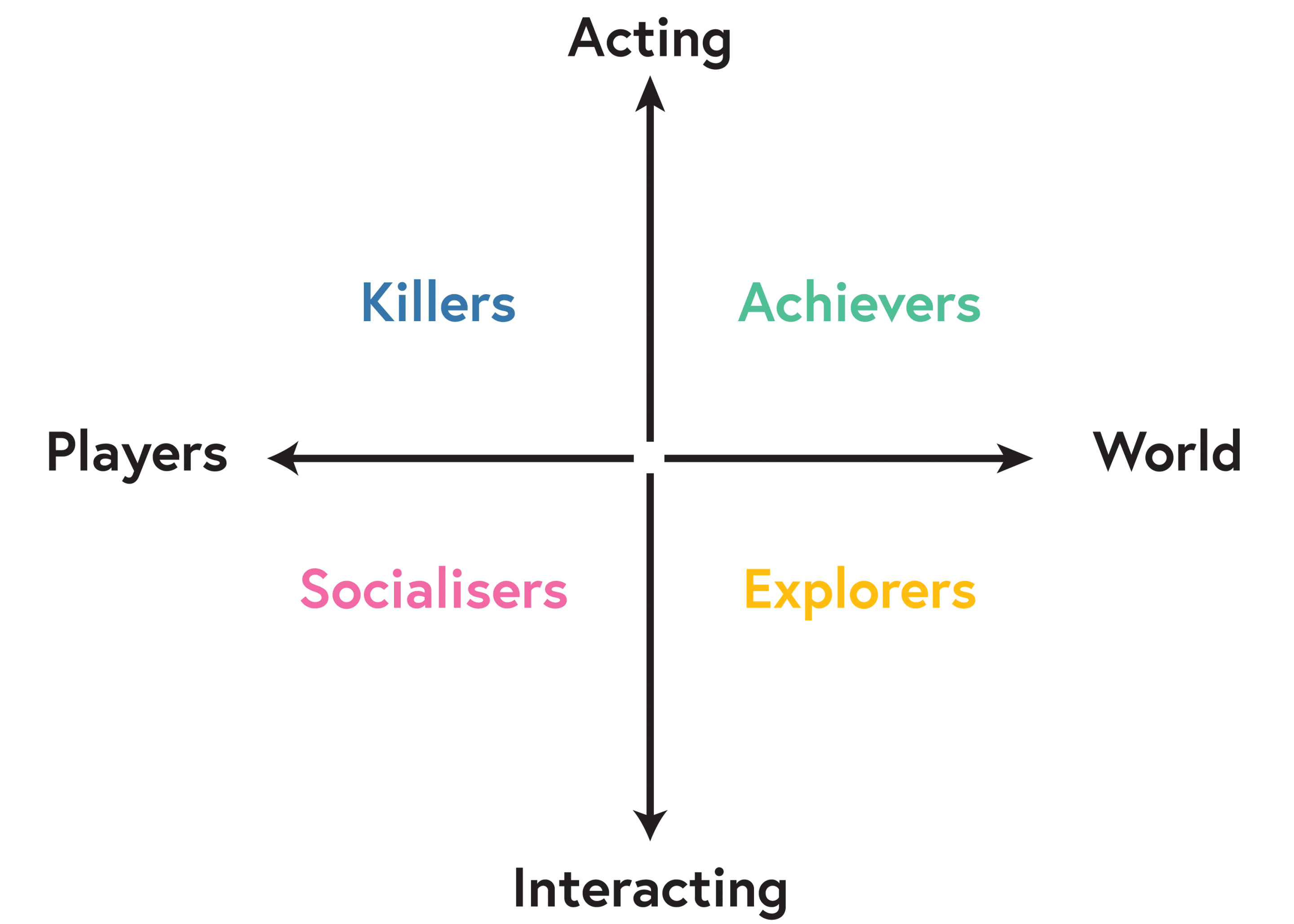
Gamers, Employees, and Managers Archetypes
Archetypes
Carl Jung’s concept of archetypes suggests that the collective unconscious is a part of the psyche that serves as a form of psychological inheritance. Rejecting the idea that the human mind is a blank slate at birth, according to Jung, the human mind retains fundamental, unconscious, biological aspects of our ancestors. These “primordial images” serve as a basic foundation of how to be human. Archetypes have been widely used since then, and the Myers-Briggs Type Indicator (MBTI) with their personality types is perhaps the most well-known model out there.
While most archetype models are just for fun and have little, if no scientific foundation, they are easy to understand and are entertaining to play with. People enjoy comparing themselves with others and archetypes provide a clear and simple structure to how you perceive yourself vs how you’re being perceived. Archetypes quizzes such as “Which Marvel superhero are you?” or “What character are you in the Harry Potter world?” are therefore popular and widely shared on social media.
Archetypes can also be more serious and help us frame our perception around people we work with and point to personality traits we recognize but don’t always manage to explain. There are archetypes of problem employees, employee engagement, and good employee archetypes every organization should ideally have to be and stay successful. Brands also have their archetypes, and there are even six types of workers, which the Bain company has studied.
On the other hand, psychometric assessment tools such as Insights Discovery, Disc, Performanse (and many others), all have as objective to help us enrich our understanding about ourselves and the others around us. Corporates, of course, use them widely to improve their workplace. While they don’t necessarily use archetypes, the objective and foundation is the same. All use questionnaires and with the help of their unique algorithm they provide as end-result a categorization and segmentation.
Archetypes can also be found in the video game industry. Actually, they’re used in literature, movies and role-playing games to define the hero, villain and other characters. Soon they will be central in the development of VR avatars. The Bartle Player Types is a tool that measures the psychology of a video game player. Richard Bartle came up with four different archetypes based on the way people play video games and what they’re looking for when playing. Everyone enjoys different game genres and has their own unique approach towards gameplay and objectives. Based on two axes, Acting/Interacting and Players/World, Bartle’s test helps design video games and any gamified experience. Bartle’s archetypes are used to craft video games suited to the right audience with the adapted game-mechanics.

Gaming and Soft Skills
There have been studies showing that video games can help develop soft skills that can be used at work. Here are some examples:
Relationship between video game genres and soft skills
Game to work
Why your children really should play videogames
10 Video Game Skills That Make You A Better Employee
This has led to create the case for gamification and game-based learning material. Based on his experience with gamification, Dominique Mangiatordi, wrote a few years back a post on advanced player types, upgrading Bartle’s model from 4 to 8 archetypes. What’s interesting is that if we start reading all those players and employees’ archetypes, we realize they’re basically the same. They’re all based on the same concepts, needs, desires, expectations, priorities and so forth.
A very interesting video was recorded about the topic about two years ago, where the presenter explains about the type of player vs the type of character played. It’s definitely worth watching to better understand the idea that video games such as RPG’s can actually tell you a lot about yourself and the team you’re working/playing with.
While we could argue that your gamer’s profile is not the same as what’s expected from you at work, it is more likely that a people person working in HR, would be more socially oriented and play a Healer rather than having the “Killer” archetype. Even if this specific person needs some time expressing lingering frustrations by shooting other players, it will be a temporary behavior.
Using the above information, we can extrapolate that a study comparing worker/player archetypes could help bring more clarity to how and which games can help employees and managers improve their skillset at work, but also help design more efficient game-based learning tools for companies to use.
In conclusion, understanding archetypes can help us better understand colleagues we work with and can lead to developing more effective training and development programs that can help both employees and managers improve their skills and productivity. With Beyönd we’re designing games that mix online escape-room and role-playing game mechanics, to have employees learn about themselves and selected soft-skills whether in a fantasy or business-related environment. Going a step further, we now started working on a new concept that will use our own gamer’s survey to link a player’s gaming experience with psychometric assessment tools and archetypes they already know so as to better understand why they took specific decisions during a game session and how it impacted the whole experience for the individual player and the team. The Bartle test is definitely a good starting point.
Should you have interest in the conception of such model, in what we do and our game-based learning experiences, be sure to drop us a line.
